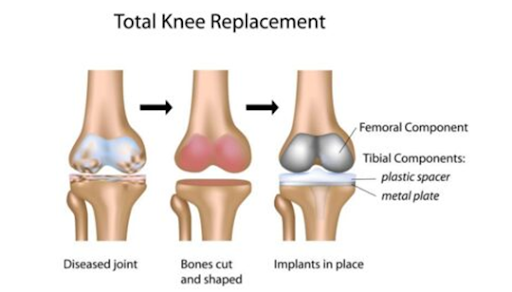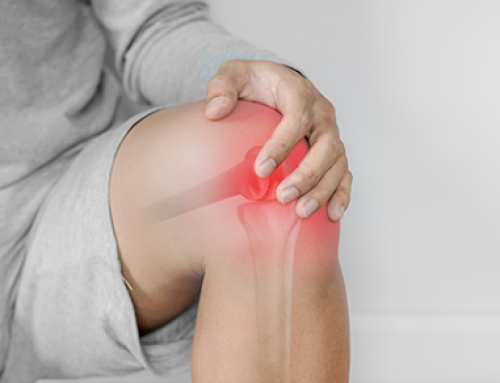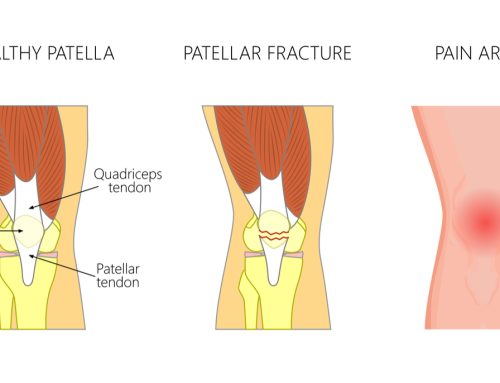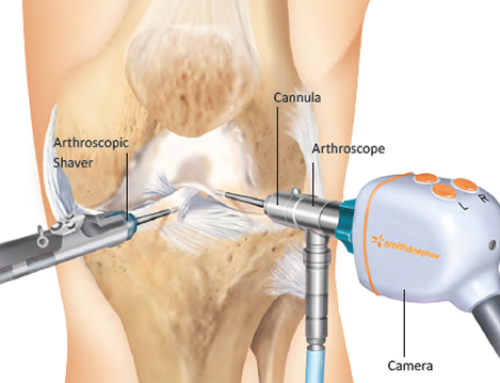Aditya Bothra is one of the best hip replacement in bhopal and he is also a specialist in hip replacement in bhopal.
All his patients are happy he is the best orthopedic surgeon in bhopal by doing hip replacement and hip surgery. And many patients also have to do that this is the best hip replacement surgeon in bhopal.
Aditya Bothra do surgery apart from Hip Replacement as well such as Knee Replacement, Knee Arthroscopy, Knee Fracture, Knee Joint Preservation & Navigation Based Joint Replacement Surgeries are also sold, they are specialist in all these and their skill is more excellent, that’s why patent Gives him a lot of good reviews and he also believes that this is the best hip replacement surgeon in bhopal.
Infection is one amongst the foremost common causes for revision of a complete Hip Replacement, together with loosening and dislocation. The incidence of infection in primary hip replacement is around 1 Chronicles or less within the us. Risk factors for infection embrace fat, diabetes, smoking, immunological disorder medications or diseases, and history of infection.
Modern diagnosing of infection around a complete Knee Replacement is predicated on the system Infection Society (MSIS) criteria. They are:
There is a sinus tract human action with the prosthesis; or
A microorganism is isolated by culture from a minimum of 2 separate tissue or fluid samples obtained from the affected prosthetic joint;
Four of the subsequent six criteria exist:
Elevated humour|liquid body substance|bodily fluid|body fluid|humor|humour} corpuscle sed rate (ESR>30mm/hr) and serum serum globulin (CRP>10 mg/L) concentration,
Elevated secretion blood corpuscle count,
Elevated secretion white cell share (PMN%),
Presence of purulence within the affected joint,
Isolation of a organism in one culture of periprosthetic tissue or fluid, or
Greater than 5 neutrophils per dynamic field in 5 dynamic fields ascertained from microscopic anatomy analysis of periprosthetic tissue at ×400 magnification.
None of the higher than laboratory tests has 100 percent sensitivity or specificity for designation infection. Specificity improves once the tests ar performed in patients in whom clinical suspicion exists. ESR and serum globulin stay smart first line tests for screening (high sensitivity, low specificity). Aspiration of the joint remains the check with the best specificity for confirming infection.
Total Hip Replacement Surgery
Hip Replacement surgeries are procedures that include replacement of the old hip joint with an artificial joint. The surgery is usually a choice in the incidence of severe pain due to arthritis or a hip fracture. People of any age may require a hip replacement implant in order to resume normal activities. Medical advancements have made it possible to treat every ailment with successful, minimally invasive procedures.
Ortho Joints Avenue is equipped with the latest technologies and highly experienced Hip Replacement Surgeons to carry out the procedure with maximum comfort and effective results. We are experts in treating various hip disorders with 99% accuracy. Aditya Bothra recommend total hip replacement surgery when other treatment options such as medication fails to provide adequate pain relief.
Through our breakthrough medical procedures, we aim to offer the freedom of movement to our patients with speedy recovery rates and minimal after-surgery limitations. The experienced teams of surgeons and supporting staff at Ortho Joints Avenue are trained professionally and are extremely co-operative that contribute to better experience during the surgical procedure.
Our qualified doctors have helped hundreds of patients walk with ease and move freely. Don’t let joints limit you when you have a better option.
What is a hip replacement?
If you’ve got a complete hip replacement, your sawbones can subtract the worn elements of your bones that square measure rubbing along. They’ll then place replacement items made up of artificial materials in their place.
Hip replacements may be made from metal, ceramic, plastic or a mix of those. Your spheroid joint may be mounted into place with bone cement (cemented) or ironed into place while not bone cement (uncemented). If your spheroid joint is uncemented, the metal surfaces square measure typically given a special coating and rough . This encourages your own bone to grow onto the unreal joint and secure it in situ.
You’re presumably to be offered a hip replacement if you’ve got terribly unhealthy arthritis. however you’ll even be suggested to own one if you’ve got alternative hip issues, like atrophic arthritis. Your sawbones can speak to you concerning the simplest variety of hip replacement to fit your wants. once a short while, artificial hip joints will wear out, however your new joint will last for up to twenty years.
What is a hip revision?
If your new hip replacement joint starts wearing out, you may need to have it replaced again. This is called a hip revision.
Hip revision surgery is often more complicated than the original hip replacement surgery. This is because your surgeon will first need to take out the existing artificial hip joint. Sometimes, your surgeon may also need to reconstruct some of the bone. This can make the operation longer.
A hip revision doesn’t always work as well as the original hip replacement.
Deciding on hip replacement
If your doctor suggests you’ve got a hip replacement, it’s vital to consider the benefits and drawbacks of this operation and if it’s right for you. Your doctor will assist you to form a choice and discuss whether or not or not you’ve got the other choices. For a lot of info on this, see our section: What area unit the alternatives to hip replacement? below.
Here area unit a number of the items you would possibly need to think about.
- After a hip replacement, the general public don’t have hip pain from now on.
- A hip replacement will assist you move around a lot of simply, tho’ you’ll not be ready to perform some activities (such as squatting) later.
- After your surgery, you’ll realize it easier to try and do some everyday activities – you’ll even sleep higher if pain has been keeping you awake at midnight.
- If you were employing a walking stick, you shouldn’t would like it when you’ve recovered from the operation.
- You’ll got to keep in hospital for a couple of days when the operation and it’ll take time to recover
- Your movement is also a small amount restricted for around six weeks when the operation. For a lot of info on this, see our section: ill from hip replacement below.
- As with any surgery, there area unit some risks concerned. For a lot of info, see our section: Complications of hip replacement and hip revision below.
- Your new hip joint might wear out eventually, and you’ll got to have another operation when ten to twenty years.
Preparing for hip replacement
Your surgeon can justify the way to prepare for your operation. If you smoke, you’ll have to be compelled to stop. Smoking makes it a lot of probably you’ll get a chest or wound infection when surgery. this could cut down your recovery.
If you’re overweight, it’s a decent plan to do to thin. it’s going to facilitate cut back|to scale back|to cut back} the strain on your enarthrosis and reduce your risk of complications when surgery. keep as active as you’ll and keep doing any exercises suggested by your doctor or physical therapist.
Your surgeon can confirm you’re to an adequate degree to possess the operation. you’ll have to be compelled to have some blood and pee tests, X-ray pictures of your hip, associated an cardiogram (ECG) to see your heart is healthy.
If you haven’t been to the medical man for a minute, book a check-up. A dental infection might cause you to a lot of probably to urge associate infection in your joint if microorganism from your teeth get into your blood. If you are taking sure medicines, you’ll have to be compelled to stop these concerning four weeks before your operation. Your surgeon can discuss this with you.
Your surgeon might suggest that you just see associate activity expert before your hip replacement. shopping for some special instrumentation or creating changes reception might mean you’ll move around a lot of simply when surgery.
Your operation will be done beneath spinal or regional anesthesia. This fully blocks feeling from below your waist, however you’ll not blink throughout the operation. otherwise you could also be able to have the operation beneath general anesthesia, which suggests you’ll be asleep throughout the operation. Your MD can allow you to understand which sort of physiological condition is best for you.
If you have got a anesthetic, you’ll be asked to follow fast directions. this implies not uptake or drinking something for a particular range of hours before your operation. It’s vital to follow your anaesthetist’s recommendation.
Your MD can see you what’s going to happen before, throughout and when your surgery. If you’re unsure concerning something, don’t be afraid to raise. no doubt is simply too tiny. It’s vital that you just feel totally educated thus you are feeling happy to administer your consent for the operation to travel ahead. You’ll even be asked to sign a consent type.
What are the Alternatives to hip replacement?
Your doctor can sometimes solely suggest you’ve got a hip replacement if non-surgical treatments aren’t easing your pain or serving to you walk additional simply. Non-surgical treatments embody taking painkillers, having steroid injections in your hip or exploitation physical aids like a walking stick.
It’s attainable you’ll have a hip resurfacing operation instead of a standard hip replacement. This involves removing the broken bone and covering the surfaces of the ball and socket of your joint with metal caps. This surgery could also be associate degree choice if you’re young and active with sturdy bones. Hip resurfacing isn’t sometimes counseled for older folks, ladies or smaller men due to potential issues. Your doc will discuss this feature with you in additional detail if you’re appropriate for this sort of surgery.
What Happens During hip replacement?
A hip replacement operation sometimes takes regarding Associate in Nursing hour around. Hip revision surgery takes longer.
During the operation, your operating surgeon can create a cut (20 to thirty cm long) over your hip and thigh. They’ll then divide your hip muscles and separate (dislocate) your ball-and-socket joint.
Your operating surgeon can take away the ball at the highest of your thigh bone and place a replacement ball on a stem into your thigh bone. They’ll hollow your socket to form a shallow cup and place a man-made socket into it. Your operating surgeon can then place your articulatio spheroidea back along (they’ll work the ball into the socket).
Finally, your operating surgeon can shut the cut in your skin with stitches or clips and canopy it with a dressing.
Recovering from hip replacement
Everyone recovers otherwise from hip replacement surgery. however quickly you recover might rely upon your age, your general health, the kind of surgery you have got and if you have got any complications. once you leave hospital, your recovery can keep it up reception. It’s necessary to create up slowly, doing a bit bit additional exercise day by day. By around six weeks, you will be ready to come to figure however this may rely upon what style of job you are doing.
Short-term recovery
You’ll most likely feel the advantages of the operation virtually at once, however you will feel some pain for a couple of weeks. You’ll sometimes be prescribed painkillers to require home once you leave hospital. If you wish additional pain relief, you will be ready to take over-the-counter painkillers, like paracetamol. however raise your doctor or nurse for recommendation 1st. forever browse the patient info leaflet that comes together with your drugs and, if you have got any questions about your medicines, raise your apothecary.
After your operation, your body uses up additional energy to assist your wound heal. For the primary few weeks, you will feel additional tired than usual, thus bear in mind to rest once you got to. If you lost heaps of blood throughout surgery, you will be suggested to require iron supplements. You won’t be ready to come to figure or drive for a minute when your operation – sometimes for around six weeks, generally longer.
Your leg could also be a small amount swollen and ache initially. however obtaining up and moving when your operation is vital. Ideally, you shouldn’t sit down for long periods of your time. At first, you’ll want support and superintendence, however it’ll step by step get easier. However, if the pain and swelling in your hip or leg gets worse, look for medical facilitate as this could be a signal of a blood in your leg.
Long-term recovery
The exercises suggested by your therapist area unit an important a part of your recovery, thus it is important to stay doing them once you’re back reception.
Your medico or therapist can also provide you with recommendation on what you ought to and shouldn’t neutralize the primary six weeks to shield your hip. for instance, try and avoid:
crossing your legs
twisting your hip inwards and outward
bending your hips past ninety degrees (a right angle)
sitting on terribly low chairs or bathroom seats – raise them wherever potential
bending over from your hips to achieve objects on the ground or tie shoelaces
cutting or painting your toenails
lying on your facet for the primary six weeks when your surgery – if you are doing, place a pillow between your legs.
Managing reception
You should be ready to move around your home and manage stairs, however you will realize things like searching tough for a couple of weeks. raise friends and family to assist out or order your searching on-line. Don’t be afraid or embarrassed to evoke facilitate. make certain you’ll move around safely reception – be careful for rugs and trailing wires.
After a handful of weeks, you ought to be ready to walk longer distances and for extended periods of your time with less support. however some individuals got to use walking sticks or crutches for around four to 6 weeks.
Try to sleep on your back for the primary six weeks. place a pillow between your knees to stay your hip within the right position. the general public will lie with when six to eight weeks however avoid any positions that place an excessive amount of pressure on your articulatio spheroidea.
Managing at work
If you’re employed, you’ll sometimes return when regarding six weeks. however if your work involves heaps of walking, standing or lifting, you will got to keep off for extended – generally for up to 3 months. Speak to your activity health authority, as you will be ready to amendment the kind of labor you are doing till you’ve absolutely recovered.
Returning to driving
You should be ready to drive once more when regarding six weeks however see your medico and automobile underwriter. You shouldn’t drive if you’re during a heap of pain or you’re still taking any medicines (including painkillers) which will cause you to drowsy. Even moving into and out of a automobile as a rider for the primary 3 weeks might place an excessive amount of strain on your hip. try and avoid traveling during a automobile unless it’s essential.
Flying
By six to eight weeks, you ought to be ready to take a brief flight (internal or European). It’s best to carry off on any long-haul travel till around twelve weeks, and forever see your doctor and travel underwriter before you go.
Returning to exercise
By around six to eight weeks, you ought to be ready to walk and swim. however it’ll take you longer to urge back to sports like lawn tennis or golf. For additional info on convalescent from hip surgery, see our FAQs: area unit there any sports I shouldn’t do? and the way am i able to build my recovery easier? below.
Frequently asked questions
It’s important that you’re as fit and healthy as possible before your hip replacement. If you’re overweight or obese, this can increase your risk of complications after surgery. So, losing some weight before your operation may help your recovery. Smoking makes you more likely to get infections after surgery. This can slow down your recovery, so it’s a good idea to give up beforehand.
It’s also a good idea to exercise to prepare your upper body for using crutches. And try to strengthen your leg muscles too. Ask your surgeon or physiotherapist for advice on the type of exercises to do.
Try to get your home ready for when you come back from hospital. You may need to rearrange your furniture to make it easier to move around safely. You’ll need to make sure you’ll be able to wash and dress yourself, and to cook easily after your surgery. You may need to make your bed, chairs and toilet seats higher so you don’t strain your hip when you sit down. An occupational therapist will have lots of advice on getting your home ready, and on borrowing or buying the equipment you’ll need. Stock up on frozen or tinned food too so you don’t need to go shopping immediately after your surgery. Or do an online shop to be delivered when you get home.
If possible, ask friends or family to stay with you for a couple of weeks after the operation to help you while you recover.
Many people return to sporting activity after their hip replacement. But speak to your surgeon before your operation about the types of sports you do and the impact they will have on your new joint replacement.
Hold off on high-impact sports that put a lot of pressure on your hips, such as cycling and tennis, until you’ve fully healed.
As you recover from your operation, you can start swimming. But your surgeon may tell you to avoid doing breaststroke as the sideways kicking may dislocate your hip. It’s a good idea to go for extra walks to strengthen your muscles around the joint. You may be able to use an exercise bike, but check with your surgeon or physiotherapist first. Cycling may be difficult for the first 12 weeks because it may be difficult to get on and off the bike.
Once you’ve made a full recovery, you can have a more active lifestyle. But try not to run on hard surfaces at first, so avoid sports such as squash and tennis. And don’t do sports with a high risk of falling, such as skiing.
You’ll need hip revision surgery to replace your artificial joint if this becomes loose, wears out or breaks. This can be a much more complicated operation than your original hip replacement. Your surgeon will need to remove the original implants and any cement used to hold them in place. Then they’ll be able to put the new implants in. Some implants can be more difficult to remove than others.
If your thigh bone has grown onto the implant, this can make the implant difficult to remove. Your bones get thinner as you get older and are more likely to break (fracture). Your surgeon might need to use a hip replacement part with a longer stem to get a stronger fix into the bone.
Your surgeon may have to rebuild the bone in your hip using bone from another part of your body or from your thigh. This is called a bone graft. If you need to have a bone graft, it may take you longer to recover and you may need to use crutches for longer.
Repeat hip operations take longer and are more complex than initial hip replacement surgery. They are also more likely to cause complications than the original operation. You may also find that your new joint doesn’t improve your mobility as much as the first operation did.
Complications that can affect your mobility after hip revision surgery include the following.
- Infection. An infection causes pain and swelling and can be quite debilitating. You’ll be given antibiotics but if these don’t help, you may need to have the implant removed.
- Scarring. Your surgeon may make cuts over your original scars, which means the tissue may not heal as well as before. Scar tissue can make your leg muscles feel stiff and affect your walking.
- Fragile bones. As we get older, our bones become thinner so they’re more likely to break. With each revision, there’s less bone to hold the new implant in place. Your joint is more likely to become loose or dislocate with each revision.
- Leg length difference. During hip revision surgery, more bone is removed because your old implant has to be taken out before your new one is fitted. So, you’re more likely to have a difference in leg length and a slight limp.
Hip revision techniques are improving all the time, and there’s every chance you’ll have a good quality of life afterwards. You may always have a limp or need to use a shoe insert, but most people should be able to return to their everyday activities. Speak to your surgeon who will be able to discuss your particular circumstances with you.
Most surgeons no longer do hip replacements where both pieces are made from metal. This is because metal-on-metal hip replacements can cause problems for some people. There’s also some evidence that small particles of metal (called debris) may get into your blood. In many people, the debris doesn’t cause any problems. But in some people, it can cause bone loss and loosen the implants.
In 2017, the Medicines and Healthcare products Regulatory Agency (MHRA) recommended that people with certain types of metal-on-metal implants should have their implants checked every year. You may be checked for five years or you may be checked for life, depending on which implants were used.
If you have a metal-on-metal implant but aren’t noticing any problems, you may just need to fill in a questionnaire every year. But if you’re in pain, have certain implants or an X-ray shows up potential problems, you may need an MRI or ultrasound scan. You may also have blood tests to measure the amount of metal in your blood at the same time. If there seems to be a problem with the scans or blood tests, your implant may need to be replaced (hip revision surgery).
If you’re not sure which type of implant you have, try not to worry. Most hospitals will have contacted you already if you have a metal-on-metal implant. If your surgery was fairly recent, speak to your surgeon or contact the hospital. There will be a record of which implants were used during your operation. If your surgery wasn’t recent, speak to your GP, who should be able to refer you back to the surgeon who performed it. If you signed a consent form to register with the National Joint Registry, you can contact them directly for details of your implant.
If you have a metal-on-metal hip implant and are having any pain or difficulty moving the joint, speak to your GP. You may need to be referred to a surgeon to check whether or not your implant is damaged.





